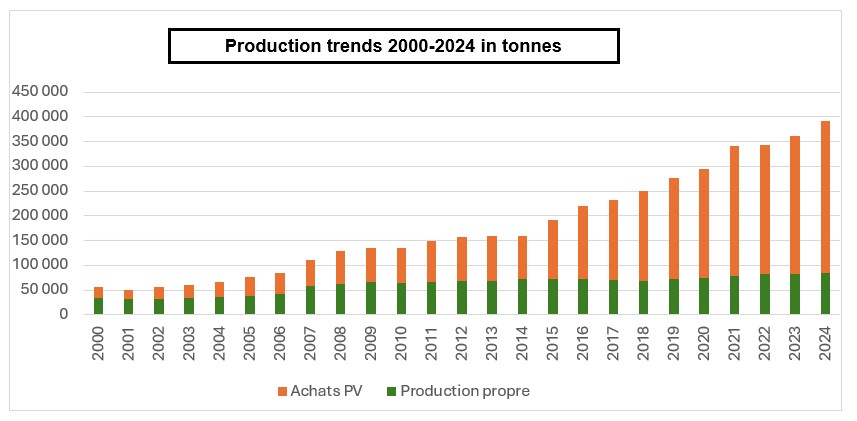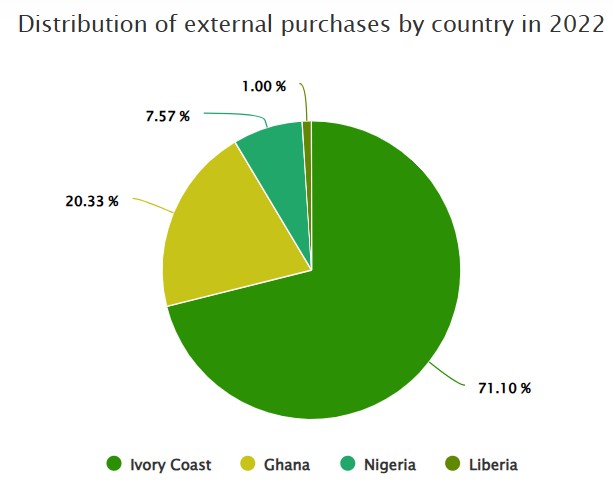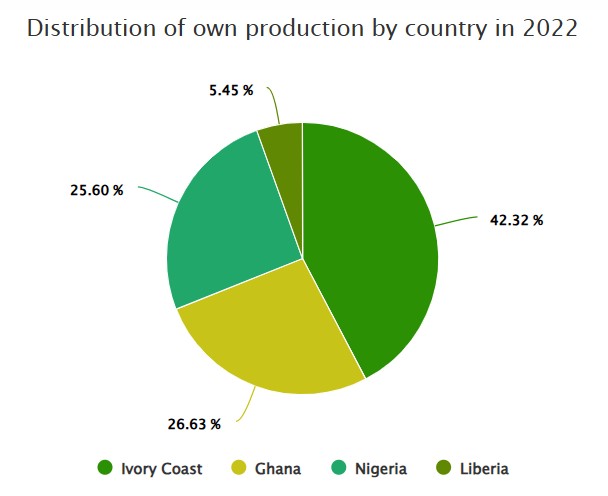SIPH’s production is from its own plantations combined with purchases from independent growers.
Thus, the rubber produced by SIPH has two distinct origins:
- 25 % is from its industrial plantations
- 75 % is supplied by local farmers
These two origins combine to strengthen and balance SIPH’s results:
- With fixed production costs, SIPH’s plantations have a stabilizing effect when rubber prices are high.
- While the cost of rubber purchased from out-growers is tied to the international rubber market and increases when international rubber prices increase.

SIPH promotes smallholder and community farms and plantations
Through the 220,000 tons of rubber SIPH purchases from local farmers SIPH actively promotes the development of rubber planting and cultivation in Western Africa.
Active smallholder participation, expanding rubber planting has resulted in Côte d’Ivoire becoming by far the leading rubber producer in Africa and the 4th producer globally. SIPH currently accounts for 30% of rubber production in Côte d’Ivoire. SIPH will continue to expand and grow in line with the projected increase in the national rubber production over the next few years. Côte d’Ivoire currently represents three quarters of SIPH’s total production.
The benefits of promoting rubber planting to smallholders and out-growers around GREL facilities has been reflected in the increased volume of rubber produced and available in Ghana.

Purchases from Ghanaian out-growers increased to about 50,000 tons in 2020 and will continue to increase strongly in the coming years as later planted trees reach maturity.
Purchases of smallholder rubber in Nigeria and Liberia for the time being are minimal.
Own production: 75 000 Tons in 2020
Ivory Coast:
SAPH plantations produced 33,000 tons in 2020, they are the oldest plantations in the group but are being progressively replanted and so production is forecast to grow to 40 000 tons in 2030.
Ghana:
GREL’s plantation production in 2020 was 19,000 tons and as the trees mature this will progressively evolve to 31,000 tons in 2030.
Nigeria:
The plantation had recently been replanted and when SAPH acquired RENL most of the trees were immature. The production is stable around 20,000 tons pa.
Liberia:
CRC’s plantation production is currently 4,000 tons, as the recently replanted areas mature, and more areas are replanted the production will increase further.
SIPH has a policy of regular responsible replanting.

Expansion of plantation areas
SIPH is constantly looking for opportunities to expand its plantation areas, strictly within the limits of its No Deforestation Policy, largely by rehabilitating degraded areas especially in Nigeria and Ghana, and within the company’s financial capability.
From 2015 to 2020 plantation extensions of 5,510 Ha of rubber and 2,118 Ha of palm were planted across the group.


